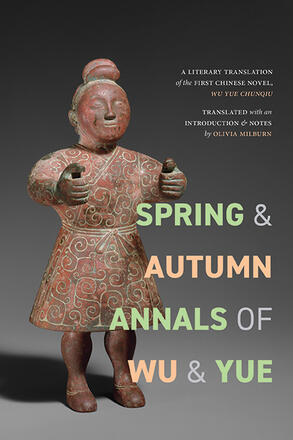
Spring and Autumn Annals of Wu and Yue
A Literary Translation of the First Chinese Novel, Wu Yue chunqiu
An approachable and readable translation of a classic work of Chinese literature and landmark work of non-Western fiction writing.
Description
A Tale of Two Kingdoms offers a highly readable translation of the earliest surviving novel written in the Chinese language, Wu Yue chunqiu (The Spring and Autumn Annals of the Kingdoms of Wu and Yue). Composed nearly two millennia ago and featuring some of the most famous characters in Chinese literature, this powerful saga of humiliation, violence, and revenge recounts the battles between the states of Wu and Yue during the Spring and Autumn period (770–481 BCE). In her detailed introduction and annotations, translator Olivia Milburn places the work in its historical and cultural context and explains its ongoing significance in the history of fiction writing in East Asia, making the case that this was, in fact, China's first novel. This approachable translation by one of the leading scholars in the field makes this key text available to specialist and nonspecialist readers alike.
Olivia Milburn is Professor in the School of Chinese at Hong Kong University. She is the author of The Empress in the Pepper Chamber: Zhao Feiyan in History and Fiction and Urbanization in Early and Medieval China: Gazetteers for the City of Suzhou. Her previous translations include Kingdoms in Peril, by Feng Menglong; The Spring and Autumn Annals of Master Yan; and The Glory of Yue: An Annotated Translation of the Yuejue shu.
Reviews
"Milburn's translation is extremely readable, and she accurately conveys the text's meanings and nuances. Moreover, her introduction—a rich analysis that recounts the reception and textual history of the book—does not disappoint. Drawing on her prodigious knowledge of the Wu and Yue kingdoms and the historical works written on them, she sets forth a bold argument that immediately captures the imagination." — Keith Knapp, The Citadel